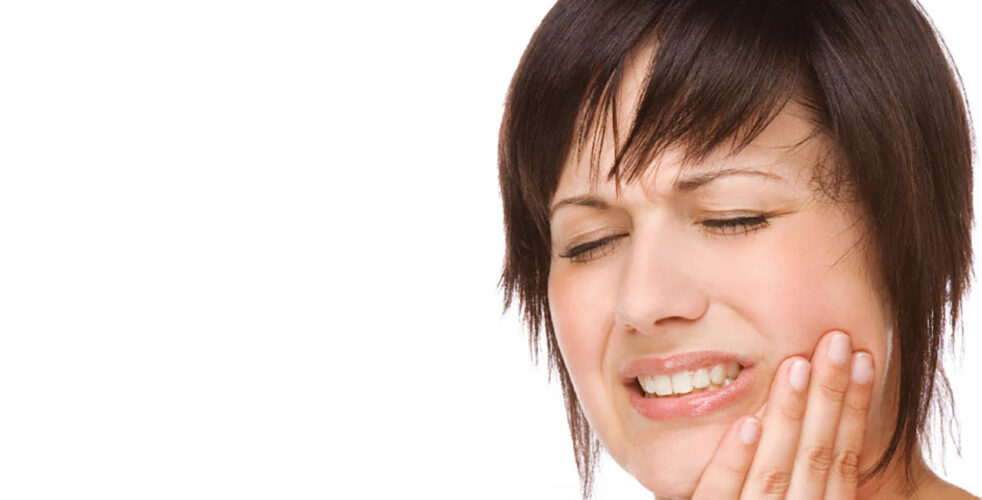Emergency Toothache Treatment Brisbane
24/7 emergency toothache treatment just south and near the Brisbane CBD by good emergency dentists open on weekends.
Pulpitis is an inflammation of the pulp, the soft inner tissue of your teeth. Pulpitis is reversible if you identify it early. Our Brisbane dentists will treat the cause of your toothache and expect the aching symptoms to resolve. The main sign that the pulpitis has progressed to irreversible pulpitis is a lingering sensitivity to heat or cold.
Reversible and Irreversible Pulpitis
Toothache is common in Brisbane. Our dental practice, Pure Dentistry provides emergency dental care by Sunnybank dentists. We know that strong toothache pain is one of the reasons employees miss workdays or students miss school days.

Tooth Pulp Inflammation (Reversible)
Are you experiencing sharp, intense toothache lasting but a moment? Is the pain more brought on by cold than warm food or beverages? Is it a type of toothache that does not occur spontaneously? Does the pain subside and not continue when the cause of the pain is removed?
A toothache from reversible pulpitis reacts normally to a percussion test.
Sign: An increased non-lingering response (sharp transient pain) to cold stimuli like cold drinks or cold air. A non-lingering response means that the pain lasts for a short few seconds upon removal of the cold stimulus. Dentists measure the duration of your response to cold stimulus on other healthy teeth and compare that to the duration of pain in your sensitive tooth. If the response duration of that tooth stands above other healthy teeth, it can be considered a lingering response otherwise the response is a non-lingering response.
In reversible pulpitis, removal of the irritation allows the pulp to recover and go back to normal conditions. However, if the irritation is continued and not resolved, reversible pulpitis can develop into irreversible pulpitis.
The pain associated with this type of toothache is typically instigated by cold stimulus only. Heat may also elicit the pain but not without cold sensitivity being present as well. This type of toothache is also known as reversible pulpitis and as the name suggests, the tooth returns to normal conditions when the inflammation is treated or resolved. Patients with reversible pulpitis, usually describe the pain as a sharp pain but the pain is not usually described as a sever pain. Striking the tooth with instruments normally does not elicit pain.
With reversible pulpitis, when the stimulus is applied, the pain is very sudden in onset. The pain is also as sudden in disappearance once the stimulus is removed from the tooth. The pain associated with reversible pulpitis is not a spontaneous type of pain i.e. the pain does not occur without an external stimulus.
Reversible pulpitis can be related to a recent:
- Tooth restoration
- Root scaling
- Occlusal attrition
- Deep periodontal curettage
- Cervical erosion, traumatic brushing
- Caries encroaching on the pulp
- Enamel fractures exposing dentinal tubules (Exposed dentinal tubules tend to be sensitive to thermal stimuli)
Reversible pulpitis is also a common side effect of Teeth whitening.
The pain in reversible pulpitis subsides as soon as the stimulant is removed and the pain is usually not too severe whereas, in irreversible pulpitis, the pain is more severe, lasts longer, and may also trigger without an external stimulus.

Differences between Reversible and Irreversible Pulpitis
Irreversible pulpitis is often a sequel to a reversible pulpitis. The response in a symptomatic irreversible pulpitis is typically a painful lingering response to a change in temperature, particularly to cold. In an irreversible pulpitis, the pulp is inflamed and is no longer able to return to a normal condition. The pain of an irreversible pulpitis is intensified by stimulus but as apposed to a reversible pulpitis, the pain can be spontaneous. It can also progress into a constant toothache and intense pain.
Toothache from an irreversible pulpitis can last several minutes to hours. The toothache is typically high enough to awaken the person at night. Biting on the tooth is painful and the patient may avoid eating on that side of the mouth.
If you are experiencing these symptoms, it is best to consult with your dentist as soon as possible to reverse the process and prevent it from turning into an irreversible inflammation or pupal necrosis.
Antibiotics for Tooth Ache?
With irreversible pulpitis, antibiotics have no effect on pain levels. For emergency management of irreversible pulpitis, antibiotics are not recommended either. One option to manage pain from irreversible pulpitis is to start root canal therapy in which the dentist removes the pulp and cleans the root canal. The second option is tooth extraction. In other words, unlike reversible pulpitis, filling is not an adequate treatment for irreversible pulpitis and the only treatment options are root canal treatment or tooth extraction.
Toothache Treatments Brisbane
Small caries can cause mild inflammation of the nerves (reversible pulpitis). It is treated by removal of carious tissue and tooth restoration. If the carious lesion causing pulpitis is not treated it can progress to severe inflammation of the nerves (irreversible pulpitis). In this stage, toothache has become spontaneous, persistent and severe. The patient may describe this toothache as “it is hurting but I don’t know where it is coming from” because at this stage the toothache is often poorly localized. Treatment options are root canal therapy or extraction.
If left untreated, a severely inflamed nerve will eventually die (necrosis). Necrosis causes severe inflammation at the end of the root of the tooth. At this stage, pain becomes localized again and the patient describes it as “it is excruciating pain when my teeth touch”. Patients experience persistent, severe and spontaneous toothache which is localized to the affected tooth and it would be sensitive to percussion tests with a metal object. Like irreversible pulpitis, treatment options are limited to root canal therapy or extraction of the tooth. Toothache treatment in Brisbane should be sought from our south of Brisbane dentists as soon as possible. If ignored, the tooth infection can spread into surrounding tissue. Cellulitis can follow. The patient can experience painful swelling of the affected tissue and it can lead to fever and spread of infection into major fascial spaces. The risk involves serious complications like loss of vision and risk of airway compromise, etc.
You should not ignore toothache and always seek dental care from your dentist if you have experienced dental pain. Follow up with our Brisbane dentists for full treatment and consider regular dental checkups afterwards.




































